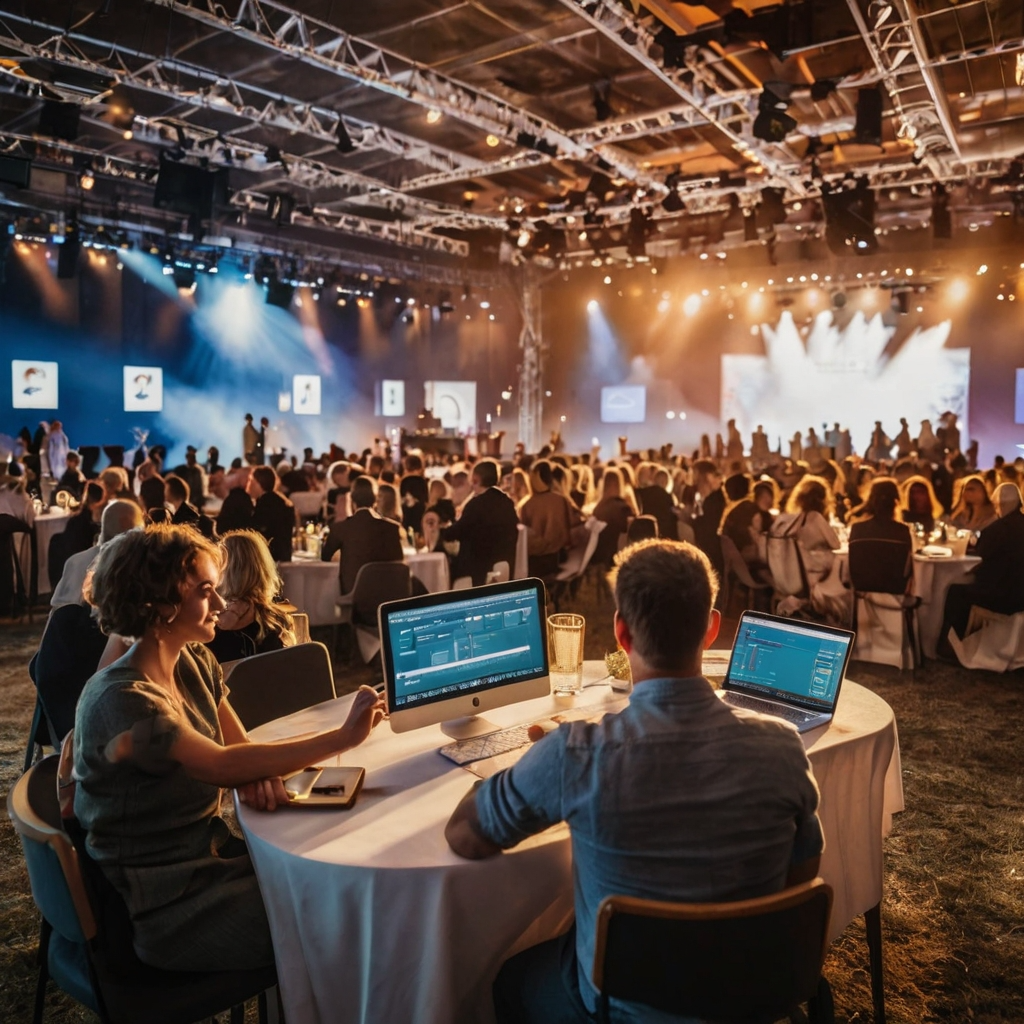In the dynamic world of conference and event management, the support of sponsors plays a pivotal role in shaping successful and impactful experiences. According to recent studies, 90% of event professionals agree that securing sponsorships significantly enhances the quality and scope of events. This article explores the multifaceted role of event sponsors beyond financial backing, highlighting their strategic importance and practical contributions.
Understanding Event Sponsorship
Event sponsorship entails a partnership where organizations or individuals provide financial or in-kind support in exchange for promotional opportunities. For organizers, sponsorship goes beyond monetary benefits; it represents a crucial means to offset costs, improve event quality, and extend event reach. Sponsors, in turn, benefit from enhanced brand visibility, direct audience engagement, and valuable networking opportunities.
Types of Event Sponsorship Opportunities
- Financial Sponsorship: Direct financial contributions that cover event expenses such as venue rental, marketing materials, and logistical support.
- In-Kind Sponsorship: Contributions of goods or services, including catering, printing, or technological support, which reduce operational costs for organizers.
- Media Sponsorship: Partnerships with media outlets for promotional coverage, advertisements, and editorial support, amplifying event visibility.
- Experiential Sponsorship: Opportunities for sponsors to create interactive experiences or branded zones within the event, enhancing attendee engagement and brand interaction.
Strategies for Attracting and Retaining Event Sponsors
Successful sponsorship acquisition begins with a thorough analysis of the event’s target audience and aligning sponsor interests with attendee demographics and interests. Crafted sponsorship packages should clearly outline the benefits, exposure, and return on investment (ROI) sponsors can expect. Building strong relationships through personalized communication and tailored sponsorship opportunities is essential for long-term sponsor retention and satisfaction.
Sponsorship Activation and Engagement
Effective sponsorship activation starts before the event with robust pre-event promotion through various channels like social media, email campaigns, and press releases. On-site activations, including interactive booths, product demonstrations, or exclusive sessions, allow sponsors to directly engage with attendees, maximizing brand exposure and audience interaction. Post-event follow-up, including thank-you notes and comprehensive reports on sponsor impact, reinforces relationships and sets the stage for future collaborations.
Case Studies and Examples
Examining successful sponsorship implementations showcases how strategic partnerships have elevated event experiences and achieved organizational goals. Insights gleaned from these case studies highlight best practices and lessons learned, guiding future sponsorship endeavors towards greater success.
The Future of Event Sponsorship
Looking ahead, emerging trends such as virtual sponsorships, sustainability initiatives, and personalized experiences are reshaping the landscape of event sponsorship. Leveraging technology and data analytics enables organizers to measure sponsorship effectiveness more accurately, ensuring optimal ROI for sponsors. Ethical considerations, including brand alignment and transparency, will continue to influence sponsorship strategies, fostering mutually beneficial partnerships.
Conclusion
In conclusion, event sponsors are integral partners in conference and event management, contributing not only financial support but also strategic insights, brand visibility, and audience engagement. As event professionals navigate the evolving sponsorship landscape, innovation and collaboration will be key to unlocking new opportunities and maximizing event success.
